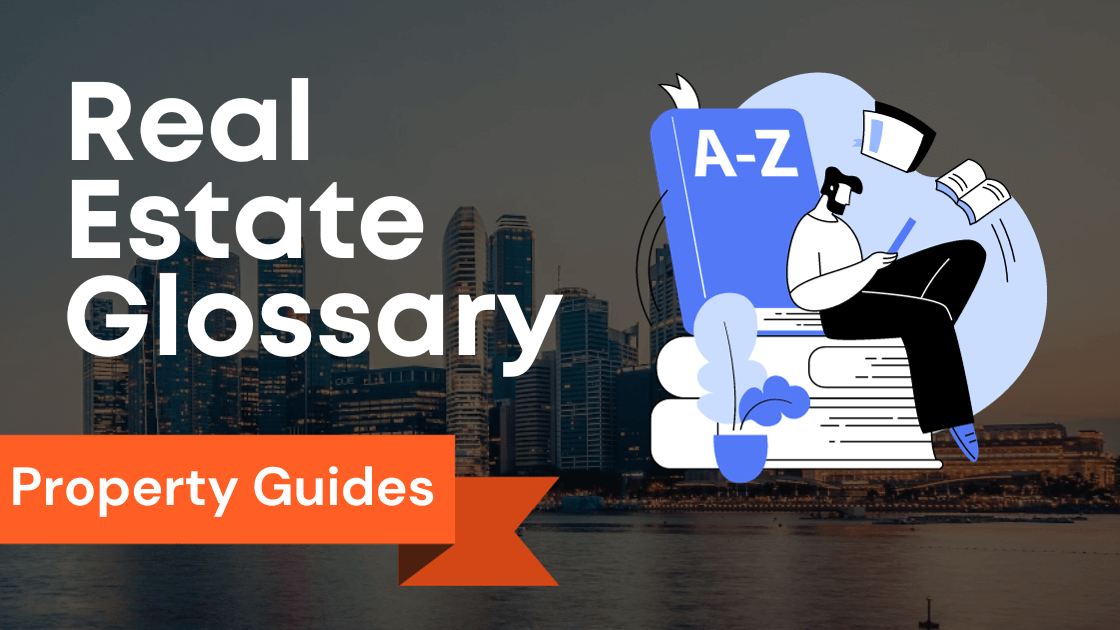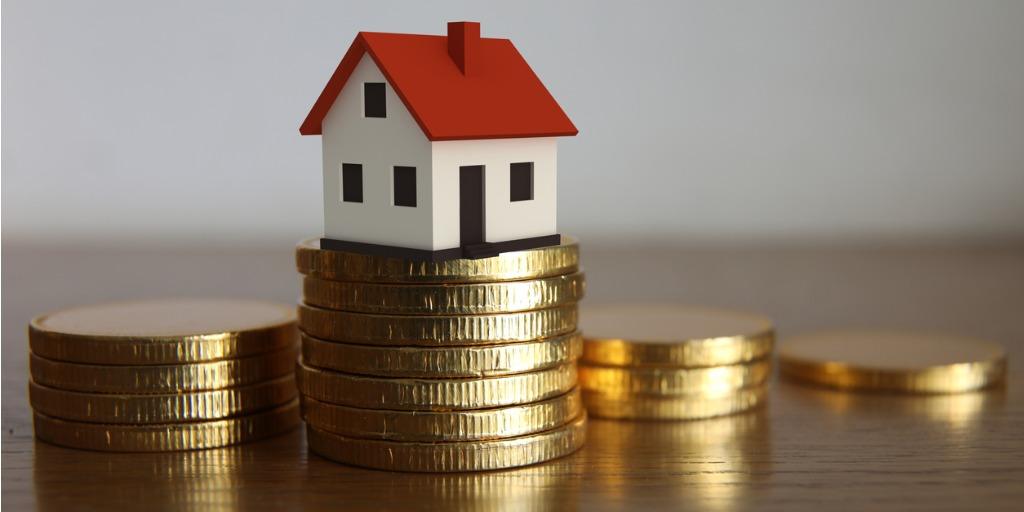
Understanding CPF Accrued Interest and Its Impact on CPF Ordinary Account CPF Accrued Interest is the interest earned on CPF OA funds over time, adding to your total CPF amount.
It’s calculated based on the monthly average balance, with a 2.5% yearly interest rate.
This interest significantly impacts your CPF OA, allowing you to use it for various purposes.
Repayment rules apply to CPF Accrued Interest, and not paying it back may have severe consequences.
Key Takeaways
| Topic | Key Takeaway |
|---|---|
| CPF Accrued Interest | – CPF Accrued Interest is the interest earned on the principal amount of CPF monies in the CPF OA account. |
| – It is calculated based on the monthly average balance and compounded annually. | |
| Impact of CPF Accrued Interest on CPF Ordinary Account | – CPF Accrued Interest adds to the total CPF amount and can be used for various purposes. |
| – It is subject to repayment rules, especially for housing grants or mortgage payments. | |
| Process of Paying Back CPF Funds and Refunds | – CPF funds used for a house purchase must be paid back, including the accrued interest. |
| – CPF refund eligibility requires meeting specific criteria, such as age and minimum CPF sum. | |
| Consequences of Not Paying Back CPF Funds | – Failure to repay CPF funds can result in increased interest, property forfeiture, and frozen CPF account. |
| Maximizing CPF Funds for Housing: CPF Housing Scheme | – The CPF Housing Scheme allows using CPF funds to purchase an HDB flat. |
| – It provides financial products like housing grants and CPF savings to assist with home affordability. | |
| CPF Housing Scheme Eligibility and Ways to Use CPF | – Eligibility criteria include citizenship, minimum CPF OA funds, and mortgage servicing requirements. |
| – CPF funds can be used for down payment, monthly mortgage payments, and mortgage interest payments. | |
| Selling Property: Procedure and CPF Housing Refund | – Procedure involves engaging an HDB-registered agent, completing the resale application, and paying loans. |
| – CPF Housing Refund is calculated based on CPF funds used for the property purchase and accrued interest. | |
| Significance of 2.5% Interest Rate on CPF Accrued Interest | – The 2.5% interest rate is high, stable, and compounded annually. |
| – It increases CPF balances over time and affects repayment obligations for housing grants and loans. | |
| Compound Interest and its Effect on Housing Loans | – CPF accrued interest is compound interest earned on CPF funds used for home loans. |
| – It increases the repayment amount over time and needs to be repaid along with the initial CPF funds. | |
| CPF Housing Loan and Need-to-Pay-Back Amounts | – Checking CPF Housing Loan balance helps track outstanding CPF funds. |
| – Need-to-pay-back amount includes borrowed CPF funds and accrued interest. | |
| Strategies for Paying Back CPF Funds | – Voluntary repayments and using CPF OA savings can reduce accrued interest. |
| – Prioritizing early voluntary repayments can save on interest payments. | |
| CPF Special Account and Using Funds for Housing | – CPF Special Account can be used to finance home purchases. |
| – CPF funds in the Special Account must be repaid, including accrued interest. | |
| Voluntary Housing Refund Scheme and its Benefits | – Voluntary Housing Refund Scheme reduces housing loan interest. |
| – It allows voluntary refunding of CPF funds used for housing, reducing the outstanding amount. | |
| Repayment Strategies for CPF Funds | – Strategies include voluntary repayments and using CPF OA savings. |
| – Prioritizing early voluntary repayments can reduce accrued interest. | |
| CPF Funds for Property Purchase: Calculations | – CPF funds can be used for property purchase, subject to specific calculations. |
| – The required amount depends |
Understanding CPF Accrued Interest and its Impact on CPF Ordinary Account
What is CPF Accrued Interest?
CPF Accrued Interest is the interest earned on the principal CPF monies in your CPF OA account.
The interest earned on your CPF OA funds over time adds to your total CPF amount.
How is CPF Accrued Interest Calculated?
The CPF Accrued Interest is calculated based on the monthly average balance of your CPF OA account.
The CPF provides a yearly interest rate of 2.
5% on OA and Special Account (SA) balances, which are compounded annually.
Hence, the total accrued interest on your CPF OA funds is the sum of the interest earned plus the principal amount.
What is the Impact of CPF Accrued Interest on your CPF Ordinary Account?
The CPF Accrued Interest impact on your CPF OA is significant.
The interest earned on your CPF OA adds to your total CPF amount, which can be used in various ways, such as purchasing a house, paying for medical expenses, or investing in a retirement account.
However, CPF Accrued Interest is subject to repayment rules, and you may have to pay back some or all of the amount used for housing grants or mortgage payments.
Exploring the Process of Paying Back CPF Funds and Refunds

How Do You Pay Back CPF Funds?
If you have used your CPF funds to purchase a house, you must pay back the funds, including the accrued interest, to your CPF account.
You can do this in different ways, such as monthly payments, lump sum payments, or a combination of both.
The amount you need to pay back depends on the outstanding balance and interest on your CPF OA account.
What Happens When You Request a CPF Refund?
If you request a CPF refund, the amount can be transferred to your bank or CPF accounts.
However, you must meet specific criteria to be eligible for a CPF refund, such as being 55 years old and having a minimum sum of $181,000 in your CPF account.
In addition, you may have to repay any outstanding amount of CPF funds used for housing grants or mortgage payments.
What are the Consequences of Not Paying Back CPF Funds?
There may be severe consequences if you do not pay back your CPF funds.
Firstly, you’ll have to repay the amount plus interest, which can significantly increase the total accrued interest.
Secondly, you may have to forfeit your HDB flat or private property, and your CPF account may be frozen.
Maximizing CPF Funds for Housing: How to Use CPF to Buy an HDB Flat
What is the CPF Housing Scheme?
The CPF Housing Scheme is a government scheme that enables Singaporean citizens and permanent residents to use their CPF funds to purchase an HDB flat.
The system offers various financial products, such as HDB home loans, CPF housing grants, and additional CPF savings, to help Singaporeans afford their first home.
What are the Eligibility Criteria for Using CPF to Buy an HDB Flat?
It would help if you met specific eligibility criteria to use your CPF funds to buy an HDB flat.
Firstly, you must be a Singapore citizen or permanent resident.
Secondly, you must have a minimum of $20,000 CPF OA funds before purchasing a flat.
Lastly, you must meet the requirements of the Housing and Development Board’s Mortgage Servicing Ratio (MSR) and Total Debt Servicing Ratio (TDSR).
What are the Different Ways to Use CPF for Your HDB Flat?
There are different ways to use your CPF funds for your HDB flat:
- You can use your CPF OA funds to pay the flat’s down and monthly mortgage payments.
- You can apply for a CPF housing grant, which can be used to offset your mortgage loan’s principal amount.
- You can use your CPF SA funds to pay monthly mortgage interest payments.
Selling Your Property: What You Need to Know About CPF Housing and Refunds

What is the Procedure for Selling Your HDB Flat?
If you want to sell your HDB flat, you must follow specific procedures:
- You must engage an HDB-registered property agent to market and sell your flat.
- You must complete the HDB resale application, submit all required documentation, and obtain a valuation report.
- You must pay for all outstanding loans and mortgages, including all CPF housing grants and accrued interest.
How is Your CPF Housing Refund Calculated?
Your CPF Housing Refund is calculated based on the remaining CPF funds used to purchase your HDB flat, including any accrued interest.
The refund will be transferred to your CPF OA or bank account, depending on your preference.
What Happens if You Sell Your Property Below the Valuation Limit?
If you sell your property below the valuation limit, you may still be liable to pay back the total amount of CPF funds used to purchase your property.
This is because, under the CPF Housing Scheme rules, there is an accrued interest that you’ll have to pay back, regardless of the selling price.
The Significance of the 2.5% Interest Rate on CPF Accrued Interest
Why is the 2.5% Interest Rate on CPF Accrued Interest Significant?
The 2.5% interest rate is significant because it is a high and stable rate of return.
The interest rate is one of the highest in the market, compounded annually, which helps to increase the total CPF amount over time.
How Does the 2.5% Interest Rate Affect Your CPF Funds?
The 2.5% interest rate affects your CPF funds in two ways.
Firstly, it helps to increase your CPF OA and SA balances over time.
Secondly, it contributes to the total accrued interest on your CPF funds, affecting the repayments you must make for housing grants and mortgage payments.
What is the Difference Between CPF Accrued Interest and CPF Interest?
CPF accrued interest is the interest earned on your CPF OA and SA account balances, while CPF interest is the interest earned on your CPF Special and Retirement Account (RA) balances.
Both types of interest are calculated at 2.5% per annum and compounded annually.
Managing Your Mortgage: How Compound Interest Affects Housing Loans

What is CPF accrued interest?
CPF accrued interest refers to the welfare of 2.5% per annum that is applied to CPF funds used to finance your home purchase.
The 2.5% interest amount is earned in your CPF Ordinary Account (OA) but is not credited back into it.
Instead, it’s used to help pay the interest on your housing loan.
Hence, the CPF funds that you used to pay for your housing loan would have earned the interest of 2.5% but, instead, were used to pay your home loan interest.
How does CPF accrued interest impact my housing loan?
If you’ve used CPF funds to finance your housing loan, there’s an accrued interest on the CPF funds used.
This interest is accumulated annually and compounded monthly.
As a result, the amount of CPF funds you need to pay back increases over time.
The amount of CPF accrued interest can be calculated using CPF online services, and it’s important to note that this accrued interest needs to be repaid along with the initial CPF funds borrowed.
What is the difference between simple and compound interest?
Simple interest is calculated on the principal amount borrowed, while compound interest is calculated on the principal amount borrowed and the accumulated interest.
The CPF accrued interest is compound interest.
Balancing Repayment: CPF Housing Loan and Need-to-Pay-Back Amounts
How do I check my CPF Housing Loan balance?
You can check your CPF Housing Loan balance through the CPF website or by contacting CPF directly.
What is the need-to-pay-back amount?
The need-to-pay-back amount refers to the initial CPF funds you borrowed and the accrued interest on these funds.
The amount you need to pay back may increase due to compound interest but can be lowered by making voluntary repayments.
How can I avoid paying more interest than necessary when paying back my CPF?
One way to reduce your interest amount is to make voluntary repayments.
Your voluntary repayments will go back into your CPF OA, earn the CPF OA interest of 2.5%, and reduce the amount of accrued interest that you owe.
The voluntary repayment also allows you to save up or invest the funds in other areas rather than having them tied up in paying back your CPF.
CPF Special Account: Utilizing Funds for Retirement and Housing

What is the CPF Special Account?
The CPF Special Account is a savings account where CPF members can deposit their CPF contributions.
The funds deposited into the CPF Special Account are meant for retirement purposes but can also be used to finance your home purchase.
How much can I contribute to my CPF Special Account?
The annual CPF contribution rate for employees is 17% of your salary.
Of this amount, 8% goes into your CPF Ordinary Account, while 9% goes into your CPF Special Account.
For self-employed individuals, the contribution rate is 37% of your income for those under 35 years old and gradually decreases to 13% for those over 55.
How can I use my CPF Special Account to fund my housing?
You can use your CPF Special Account to pay for your housing loan.
The funds from your CPF Special Account include the initial amount borrowed and the accumulated interest.
Similarly, you’ll also need to refund the amount back into your CPF Special Account, plus accrued interest.
Exploring the Voluntary Housing Refund Scheme for CPF Funds
What is the Voluntary Housing Refund Scheme?
The Voluntary Housing Refund Scheme aims to help CPF members lower their housing loan interest.
CPF members can voluntarily refund their CPF funds used for their housing loan back into their CPF accounts to reduce the outstanding amount, hence lowering the accrued interest.
How can I use the Voluntary Housing Refund Scheme to my advantage?
You can benefit from the Voluntary Housing Refund Scheme if you have sufficient funds in your CPF account to voluntarily refund the amount borrowed for your housing loan.
The repaid funds are credited back into your CPF account and earn an interest of 2.5%.
This way, the reduced CPF balance lessens the accrued interest on your housing loan.
What are the eligibility requirements for the Voluntary Housing Refund Scheme?
Eligibility for the Voluntary Housing Refund Scheme depends on the balance in your CPF account and the outstanding amount of your housing loan.
The CPF website has a CPF housing refund calculator that can help you calculate how much you can voluntarily refund into your CPF account and whether you are eligible for the program.
Repayment Strategies: Paying Back CPF Funds for Home Financing

What are the different repayment strategies for paying back CPF funds?
One repayment strategy is to make voluntary repayments to your CPF account regularly.
Another method is to use CPF Ordinary Account savings to pay off your housing loan monthly.
Using these strategies, you can reduce the amount of accrued interest on your housing loan, saving money in the long run.
How can I prioritize my CPF funds repayment?
One way to prioritize is to make voluntary repayments as early as possible.
By doing so, you can avoid paying more interest while reducing your housing loan’s outstanding CPF funds balance.
What happens if I am unable to pay back my CPF funds?
If you cannot pay back your CPF funds, the outstanding CPF balance will continue accumulating interest.
Exploring other avenues to increase your income or reduce your expenses is best to ensure timely and regular repayments.
CPF Funds for Home Purchase: How to Calculate the Required Amount
How can CPF funds be used for a property purchase?
Cash proceeds, bank loans, and CPF funds can be used to buy a property.
CPF funds can be used to pay the purchase price of a property, stamp duties, option fees, and legal fees.
What are the necessary calculations to determine the required amount?
Before purchasing a property, it is essential to calculate the amount of CPF funds required.
The amount of CPF funds that can be used for a property purchase depends on the valuation of the property and the buyer’s CPF Ordinary Account (OA) balance.
CPF funds can be used up to the Valuation Limit (VL), which is the lower purchase price or the property’s value at market value.
The VL is set to ensure that buyers have a minimum equity of 20% of the property price.
The OA balance can be used to pay the purchase price, stamp duties, and legal fees.
Are there any charges or fees involved in using CPF funds for this purpose?
No charges or fees are involved in using CPF funds for a property purchase as long as the buyer complies with the CPF rules and regulations.
However, buyers need to be aware of the CPF accrued interest that needs to be refunded when selling the property.
Understanding the Role of CPF Accrued Interest in Property Transactions

What exactly is CPF accrued interest, and how does it affect property transactions?
CPF accrued interest is the interest earned on the CPF funds used for a property purchase.
The interest rate is calculated monthly at the prevailing CPF OA interest rate, currently at 2.5% per annum.
When a property is sold, the CPF accrued interest must be refunded to the CPF accounts.
What happens to the accrued interest when a property is sold?
When a property is sold, the CPF accrued interest must be refunded to the CPF accounts.
The refund comprises the principal amount for the property purchase and the CPF accrued interest.
Can CPF accrued interest be used to pay for other expenses related to the property?
No, CPF accrued interest can only be used to repay the CPF funds used for the property purchase and cannot be used to cover other expenses related to the property.
The Importance of Refunding CPF: Implications and Procedures
Why is it important to refund CPF funds?
Refunding the CPF funds used for a property purchase is essential to ensure that the CPF savings are available for retirement, housing, and healthcare needs.
The CPF accrued interest is also refunded to ensure the funds are fully returned to the CPF accounts.
What are the implications if CPF funds are not refunded?
If CPF funds are not refunded, the amount owed will continue to accrue interest at the prevailing CPF OA interest rate.
This means the longer the delay in refunding the CPF funds, the more interest must be paid.
The CPF Board may sometimes take legal action to recover the outstanding amount.
What is the procedure for refunding CPF funds after a property sale?
To refund CPF funds after a property sale, the seller must submit a request to the CPF Board.
The CPF Board will then calculate the amount of CPF funds used for the property purchase and the CPF accrued interest.
The refund will then be made directly into the seller’s CPF accounts.
Exploring the Impact of CPF Accrued Interest on Retirement Savings

What is the role of CPF accrued interest in retirement savings?
CPF accrued interest plays a crucial role in retirement savings as it represents the interest earned on the CPF funds used for a property purchase.
The CPF savings can be used to provide retirement income in the form of a CPF LIFE annuity, and the interest earned on the savings is a critical component of the passive income stream in retirement.
How does CPF accrued interest affect the amount of retirement funds one can accumulate?
The CPF accrued interest is a critical factor in determining the amount of retirement funds that can be accumulated.
The longer the CPF funds are left to get, the more CPF accrued interest will be earned.
CPF funds can also be invested in cash investments, stocks, bonds, and Singapore Government Securities (SGS) to maximize the returns further.
Are there any strategies to maximize CPF accrued interest for retirement savings?
To maximize CPF accrued interest for retirement savings, individuals can pay for a property in cash or lower the amount of CPF funds used for the property purchase.
This will ensure that the CPF funds are left to accumulate and earn interest over time.
Individuals can also invest the CPF funds in stocks, bonds, and SGS to maximize returns.
It is important to note that CPF funds can only be withdrawn if used to pay for property or healthcare needs.
CPF Funds and Housing Grants: Maximizing Financial Support for Property Buyers
What are the available housing grants for property buyers?
The available housing grants for property buyers in Singapore include the Enhanced CPF Housing Grant (EHG), Family Grant, Proximity Housing Grant (PHG), and Singles Grant.
These grants are designed to provide financial support for eligible buyers.
How can CPF funds be used in conjunction with these grants to maximize financial support?
CPF funds can be used with these grants to maximize financial support for property buyers.
The EHG and PHG can cover the downpayment and monthly installments in cash, while the CPF funds can cover the remaining purchase price.
The Family Grant and Singles Grant can also provide additional financial support.
What are the eligibility criteria for these housing grants?
The eligibility criteria for these housing grants vary depending on the grant type.
For example, the EHG is available for first-time buyers and can provide up to $80,000 in donations.
The PHG is available for families buying property near their parents or children.
The Family Grant and Singles Grant are available for families and singles who buy a property for the first time.
The eligibility criteria also depend on income level, age, and other factors.
Conclusion
In conclusion, understanding CPF accrued interest is essential for anyone utilizing CPF funds, especially regarding housing purchases and loans.
CPF accrued interest is the interest earned on CPF funds used for a property purchase, and it plays a significant role in the total amount of CPF savings.
The 2.5% interest rate on CPF accrued interest is substantial, and it helps to increase the CPF balance over time.
However, it is essential to be aware of the impact of CPF accrued interest on housing loans, as it adds to the amount that needs to be repaid.
Timely repayment is crucial to avoid incurring additional interest and potential consequences such as the forfeiture of property or frozen CPF accounts.
Frequently Asked Questions
What is CPF accrued interest?
CPF accrued interest is the additional interest earned on the CPF savings in your Ordinary Account (OA), Special Account (SA), and Retirement Account (RA) at a current annual interest rate of 2.5%.
It is the interest you would have earned if you had kept your CPF funds in your accounts instead of using them for other purposes.
Can I use my CPF funds?
Yes, you can use your CPF funds for various purposes, such as paying for your house, investment, education, and healthcare.
However, you’ll need to repay the CPF funds with interest at the prevailing CPF interest rate when you sell your property or withdraw your CPF funds.
How much CPF funds do I need to have in my account to start earning interest?
You’ll start earning CPF accrued interest on the first dollar of savings in your CPF account.
What is CPF OA?
CPF OA stands for CPF Ordinary Account, which is one of the three CPF accounts (OA, SA, and RA) that you can save money in.
It is used for housing, education, and investment purposes.
What is the current annual interest rate for CPF?
The current annual interest rate earned on your CPF savings in your OA, SA, and RA accounts is 2.5%.
Do I need to pay back the CPF funds I used for my property?
You would have to pay back the CPF funds with accrued interest when you sell your property or use CPF funds to pay for your next property.
How can I calculate my CPF accrued interest?
CPF accrued interest is calculated by multiplying the monthly closing balance of your CPF savings by the interest rate at 2.5% per annum, divided by 12.
Can I use the sales proceeds from my property to pay back my CPF funds?
Yes, you can use the sales proceeds from your property to pay back your CPF funds with accrued interest.
The funds can be credited back into your CPF account as cash refunds or bank deposits.
What is the difference between coupon rates and interest rates in the bond market?
Coupon rates are the fixed interest rates paid on a bond’s face value, while interest rates are the prevailing rates that affect the bond’s market value.




















